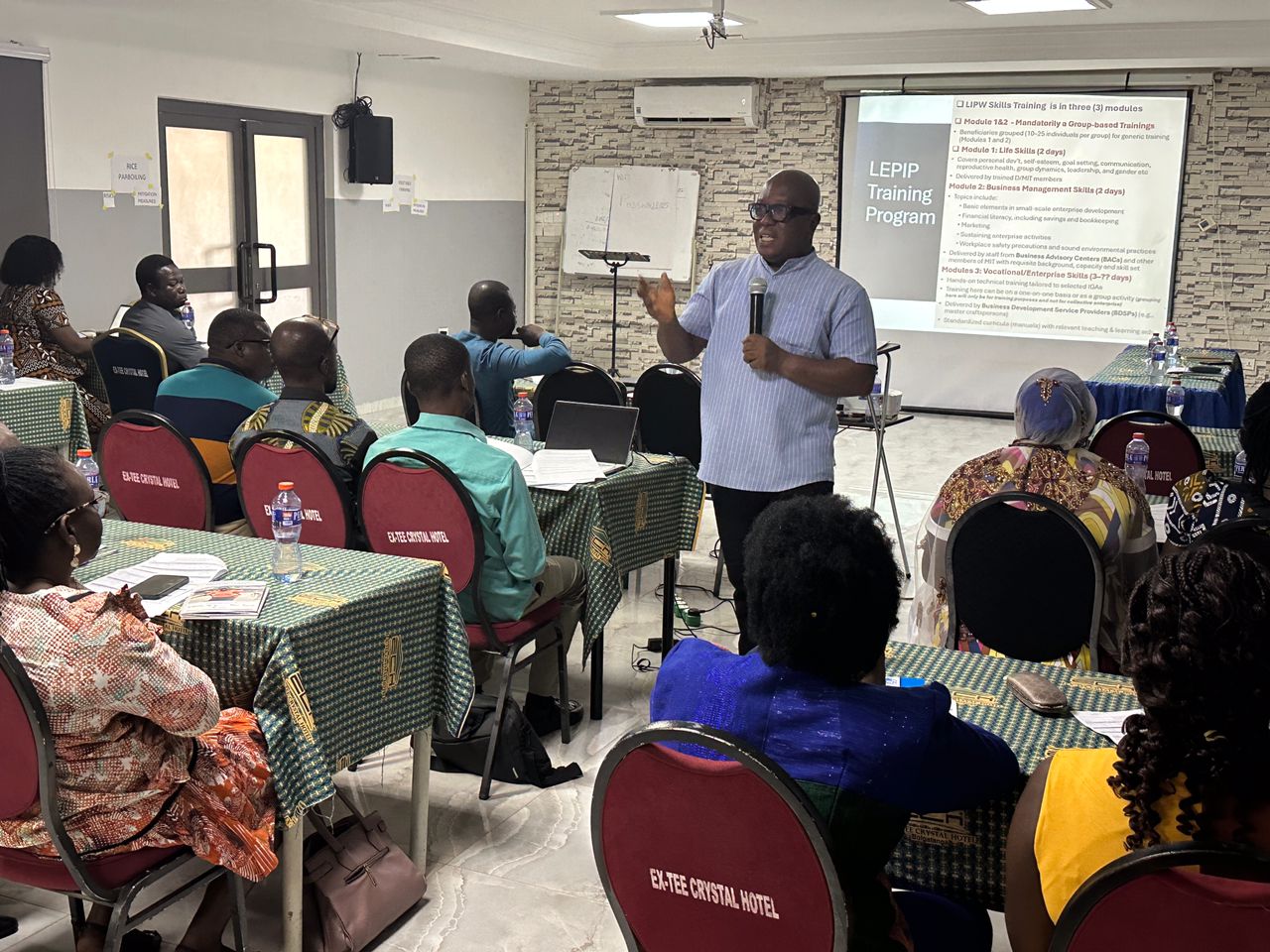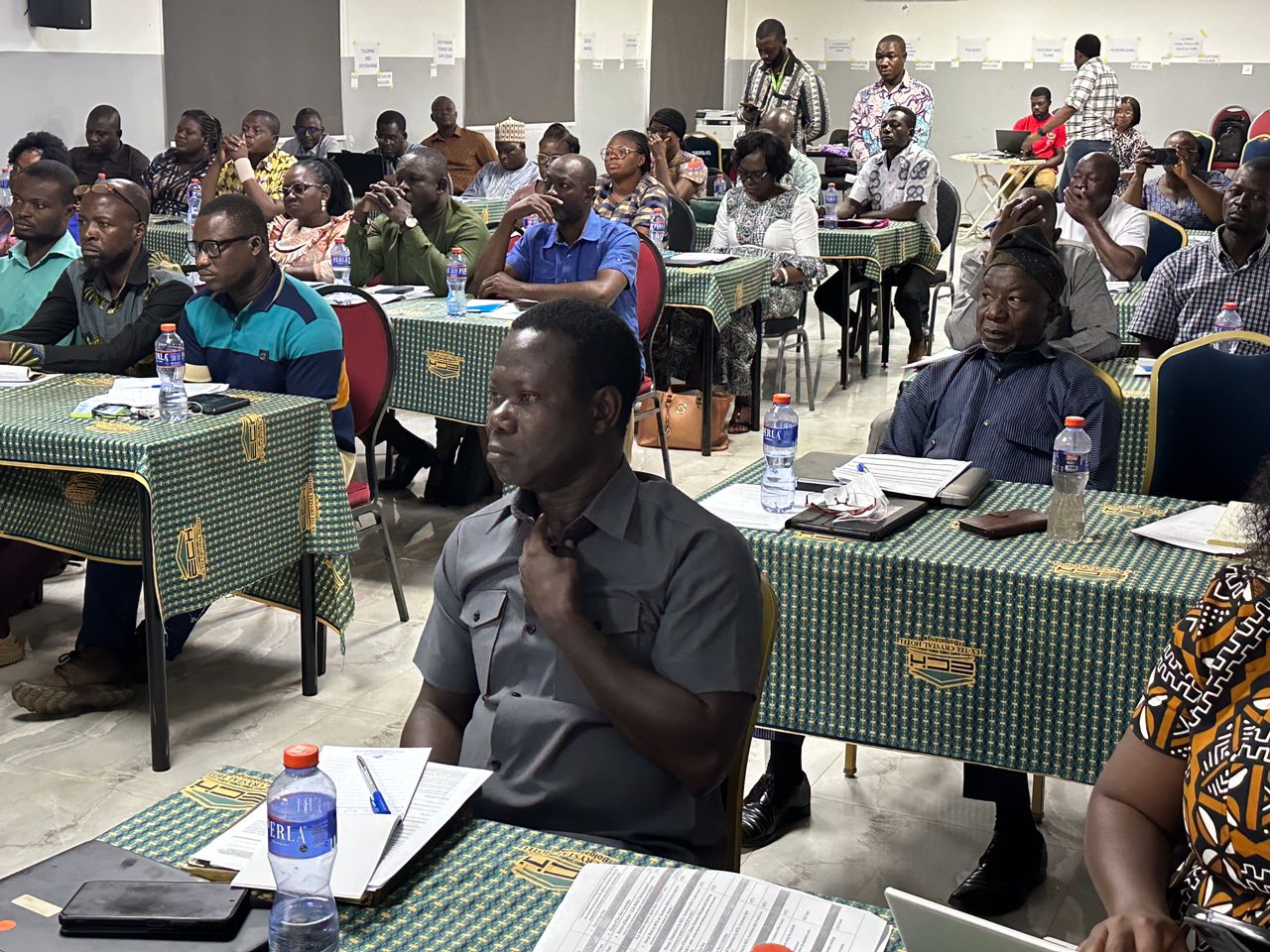Elate Crystal Hotel, Bolgatanga – 17 June 2025
The Ministry of Local Government, Chieftaincy and Religious Affairs (MLGCRA), in collaboration with UNICEF and the Ghana Productive Safety Net Project Phase II (GPSNP2), has successfully concluded a three-day Training of Trainers (ToT) workshop in Bolgatanga. The training, held under the flagship Livelihood Empowerment and Productive Inclusion Programme (LEPIP), aimed to build the capacity of local actors to implement a skills development programme targeting out-of-school adolescent girls.
The workshop brought together stakeholders from Regional and Municipal Assemblies, including officers from the Departments of Social Welfare, Community Development, Education, Youth, and Enterprise. It marked a key milestone in the national rollout of LEPIP’s skills training component and underscored the Ministry’s commitment to addressing social and economic exclusion among Ghana’s most vulnerable youth.
LEPIP is a transformative government initiative spearheaded by MLGCRA through GPSNP2, with technical and financial support from UNICEF. The programme targets out-of-school adolescent girls between the ages of 16 and 21, equipping them with life skills, vocational and entrepreneurship training, and start-up capital. It also offers complementary support in areas such as nutrition, mentorship, and innovation, with the goal of building socio-economic resilience and breaking the cycle of poverty for participants.
Currently, the programme is being piloted in the Kassena-Nankana and East Mamprusi Municipal Assemblies. Based on early results and stakeholder engagement, MLGCRA plans to scale up the initiative to ten additional Metropolitan, Municipal and District Assemblies (MMDAs). This planned expansion aligns closely with national social protection frameworks, including the Livelihood Empowerment Against Poverty (LEAP) programme under the Ministry of Gender, Children and Social Protection (MoGCSP), the Complementary Livelihood and Asset Support Scheme (CLASS), and the Integrated Social Services (ISS) Delivery Framework coordinated by MLGCRA.
Over the course of the training, participants received in-depth instruction in areas such as life skills development, vocational pathways, small business management, and mentorship. The training also introduced participants to digital monitoring tools that will be used to track attendance, implementation progress, and programme outcomes in real time—ensuring a data-driven and accountable approach to delivery.
Speaking at the opening session, the Ministry’s representative highlighted the significance of the programme in restoring dignity and creating opportunity for young girls often excluded from formal development efforts. “LEPIP represents a shared vision of promoting dignity, opportunity, and hope for young people who have often been left behind,” the representative stated.
Ms. Christiana Gbedemah, Social Protection Specialist at UNICEF Ghana, commended the Ministry for its leadership and its prioritization of inclusive, cross-sectoral collaboration. She reaffirmed UNICEF’s commitment to supporting marginalized adolescent girls and expressed confidence in LEPIP’s potential to create lasting change in the lives of its beneficiaries.
The Ministry of Local Government, Chieftaincy and Religious Affairs is confident that the workshop has equipped regional and municipal stakeholders with the tools and knowledge needed to implement LEPIP effectively. It is expected that the training will lead to more coordinated and impactful service delivery at the community level, helping to realize the national vision of a more inclusive and equitable Ghana—where every girl has the opportunity to thrive.


